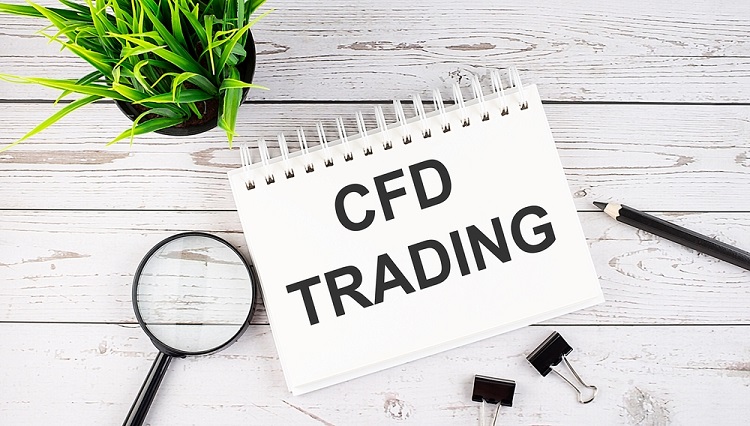Contracts for Difference (CFDs) are widely used trading instruments in Singapore that enable traders to wager on the price fluctuations of an underlying asset, all without the need for ownership. This derivative product has gained significant popularity over the years due to its flexibility and leverage capabilities, making it a go-to choice for many traders.
However, as with any financial instrument, there are risks involved in trading CFDs that traders must be aware of. This article will discuss everything traders need to know about CFDs in Singapore, including the definition, features, benefits, and risks.
If you are keen to check out the kinds of underlying assets you can trade with CFDs, check out Saxo CFD broker.
Table of Contents
What are CFDs?
CFDs are versatile financial instruments that provide traders with the opportunity to capitalise on price movements in various underlying assets, including stocks, indices, commodities, and currencies. With CFDs, traders can wager on these assets’ fluctuating values, unlocking potential profit opportunities. CFDs and traditional trading differ primarily in that, unlike conventional trading, where traders own the underlying asset, CFD trading involves entering into a contractual agreement with a CFD broker.
The concept of CFDs was first introduced in the 1990s and has since gained popularity among traders due to its flexibility. Traders can take both long and short positions on a variety of assets, allowing them to profit from price movements in any direction.
CFDs offer leverage, which means that traders can trade with a fraction of the total value of the underlying asset, making it a cost-effective option for traders. However, it is essential to note that leverage also amplifies profits and losses, making CFD trading a high-risk activity.
Choosing the right CFD broker
One of the crucial steps to successful CFD trading is choosing the right CFD broker. With numerous options available in Singapore, it can be overwhelming to select the best one for your trading needs. Here are some key factors to consider when choosing a CFD broker:
- Regulation: The Monetary Authority of Singapore (MAS) regulates all financial institutions in Singapore, including CFD brokers. Ensure that MAS regulates your chosen broker and follows strict guidelines to protect traders’ interests.
- Trading platform: A user-friendly and efficient platform is essential for CFD trading. The platform should offer real-time market data, advanced charting tools, and a variety of order types to execute trades effectively.
- Asset selection: Different CFD brokers offer different types of assets for trading. It is crucial to choose a broker that provides the assets you are interested in trading.
- Fees: CFD brokers make their profit through spreads and commissions. It is essential to compare the costs among different brokers and choose one with competitive rates.
- Customer support: As CFD trading can be complex, it is crucial to have a broker with excellent customer support who can assist you with any queries or concerns promptly.
Benefits of CFD trading
Several benefits of CFD trading make it an attractive option for traders in Singapore. Some of the key advantages include:
- Flexibility: As mentioned earlier, CFDs offer flexibility as traders can take long and short positions on various assets.
- Leverage: With leverage, traders can trade with a fraction of the total value of the underlying asset, allowing them to enter more prominent positions with less capital.
- Diversification: CFDs provide traders with a vast selection of tradable assets, enabling them to diversify their portfolios and effectively manage risks.
Risks of CFD trading
As with any financial instrument, there are risks involved in trading CFDs that traders must understand and manage. Here are some of the critical risks associated with CFD trading:
- Leverage: While leverage can amplify profits, it can also magnify losses. Traders must use leverage carefully and have a risk management strategy in place.
- Volatility: CFDs are highly responsive to market volatility, and abrupt price fluctuations can lead to substantial losses. Traders must be aware of the associated risks and implement stop-loss orders to mitigate potential losses effectively.
- Counterparty risk: CFD trading involves entering into a contract with a broker, making traders vulnerable to counterparty risk. It is crucial to choose a reputable and regulated broker to mitigate this risk.
Strategies for successful CFD trading
To be successful in CFD trading, traders must have a well-defined strategy and adhere to risk management principles. Here are some key strategies that can help traders achieve success:
- Develop a trading plan: Creating a well-defined trading plan is crucial in setting your goals, determining your risk tolerance, and outlining your strategies. It is imperative to adhere to this plan and avoid making trading decisions based on emotions.
- Use stop-loss orders: Stop-loss orders are crucial in limiting potential losses. Traders must set a stop-loss for every trade and be disciplined in adhering to it.
- Keep up with market trends: Staying updated with market news and trends can help traders make informed trading decisions.

